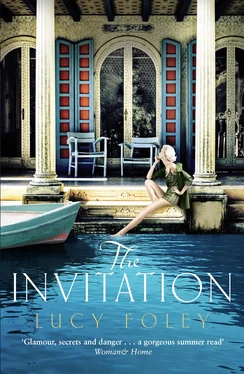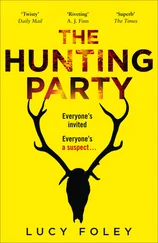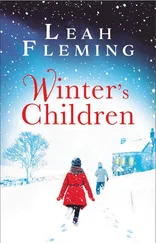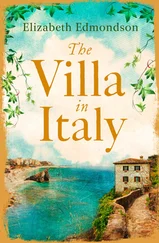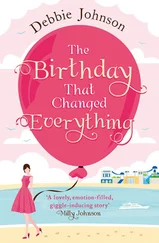1 ...6 7 8 10 11 12 ...18 ‘ È l à ! ’
In the distance: a semicircular opening in the dark mass of trees, separated from the water by a silvery thread of sand. And nestling among the trees, dead centre, an enormous building. A grand hotel, one might presume, seeing it from afar. As they draw closer Hal is better able to make it out. A palace, in the Belle Époque style. The façade is a coral pink that anywhere else in the world would look ridiculous … and yet here, drenched in the evening sun, is something like magnificent. A white jetty stretches out like a piece of bleached driftwood into the blue depths. A figure waits, watching their approach.
Hal steps onto the jetty, heaving his bag after him. The waiting figure is a liveried member of staff who strides toward Hal, hand outstretched for his luggage. Against the spotless white of his uniform the leather case looks small and battered.
‘Good evening, sir.’
Hal goes back to the fisherman, pays him, quickly. The man seems a little bemused, as though he had never expected his shabby passenger to be welcome in such a place. With a shake of his head, as though to clear it, he fires his engine and is gone.
It is evening now, Hal realizes, the light like blue glass. Before them rises a shallow stone staircase flanked by a line of pine trees. Each is topped by a fluid dark abstract of foliage, like a child’s drawing of a cloud. Their resiny scent fills the warm air. The man leads the way, moving so briskly that Hal has to jog a little to keep up. They move past a series of gardens, each, Hal sees, is different from the last. ‘The Japanese garden,’ the man says, as they pass the first: and in the manmade pools Hal glimpses an iridescent carp, sliding fatly among trailing pondweed. There are ornamental bridges, gravel raked into intricate patterns about carefully shaped hillocks of moss. Then the Moroccan garden, filled with bright blooms that spill from urns painted a luminous blue. The Italian garden: a stately formal arrangement of dark shrubs and classical statues. As Hal and his guide pass, a flock of white doves take wing. It is itself like a film set, Hal thinks, hardly real.
Inside, the house is a cool space, reminiscent of an art gallery. A couple of line drawings that might be Picasso – his eye isn’t good enough at this distance to be certain. A cuboid nude that could be Henry Moore.
The room that he is shown to is white, high-ceilinged.
‘You can change here for the evening,’ the man tells him. ‘Drinks are at seven thirty.’ Hal looks down at his travelling suit. Change into what, exactly? The suit is crumpled, but it is by far the smartest thing he owns. He wore it because it is the smartest thing he owns. And so he sits down on the bed, looks about himself. The window has a view out towards the back of the house, where a great stone terrace leads down into further manicured gardens, showing now as a dark emerald green. A space hewn by the twin forces of wealth and will out of the natural gorse. At the far end is a line of tall cypresses. In the weakening light they are black sentinels, funereal in aspect. Suddenly he catches a shimmer of gold, which resolves itself into the hair of a woman. She wears what appears to be a long black dress, camouflaged against the trees behind her so that only her face and arms can be made out. An unnameable excitement runs through him. He goes to turn out the light in the room, so he can make the scene out better, but when he looks back she has disappeared.
At eight o’clock the open window discloses the unmistakable sounds of musical instruments being tuned: the squawk of violins, the throb of a double bass. Hal showers in the gilded bathroom, sloughing off the crust of salt, and glances quickly in the mirror. His clothes are more creased than ever. But his face betrays little of his tiredness. He knows that he is lucky, to look like this. His face is his passport.
When he returns downstairs the gardens have been transformed: lit now by a host of lanterns and filled with guests. Some of the guests are from a similar crowd to the party in Rome; they have that same lustre of wealth, of lives lived on the grand scale. But he sees, too, children dressed as if for the beach, dark-haired girls in simple sundresses, men in casual trousers and unbuttoned shirts. Along one wall of the house a line of elderly men sit and talk with great intensity: all wear battered caps in various sun-faded hues, sandals on hoary feet. The women who Hal presumes are their wives look on censoriously from a few metres away and they, too, wear an unofficial uniform: floral-patterned smocks and woollen cardigans. Hal’s suit no longer seems such a faux pas . But he is aware that he belongs to neither tribe: not that of the dinner jackets, or that of the summer slacks. He is an anomaly.
‘Hal.’
He turns, and finds the Contessa. She is wearing a tangerine linen dress than could almost be a monk’s tabard, with a large hood pulled up over her hair. It is one of the more eccentric outfits Hal has ever seen.
‘I’m so pleased,’ she says. ‘I worried that you would change your mind.’
Hal thinks that she can have no concept of a journalist’s living, if she imagined he might have been able to turn her offer down.
‘I wanted to know something,’ he says, because he has been wondering. ‘How are we travelling to Cannes?’
‘Ah,’ she says, ‘but you will find out tomorrow morning.’
‘All these people are coming too?’ He gestures toward the crowd.
She laughs. ‘Oh, no. No. I have invited them all for the evening.’ She counts off the different groups on her fingers. ‘There are friends, the film crowd, your colleagues from the press’ – she gestures towards a passing photographer – ‘and some of the people from the village near here. They come often – especially the children and their parents – to swim off my jetty, and walk in the grounds. It is why I make such an effort with the gardens. And they appreciate a good party, like all sensible Italians. Wait until the dancing starts. But first I will introduce you to the other guests. Come.’ She beckons with one hand.
The man she leads him to first is etiolated-looking, with blond hair so pale that it is almost white, receding on either side of the head severely. A thin face, with all of the bones visible beneath the skin. He is dressed in a wine-coloured suit – beautifully made, but with the unfortunate effect of making his complexion sallower still.
The Contessa moves into English. It is the first time Hal has heard her use it, and he is surprised by her fluency. ‘Hal Jacobs, meet Aubrey Boyd, who will be taking the pictures to accompany your article. This man is the only true challenger to Beaton’s crown, in my opinion. He is a simply splendid photographer – makes one look like a goddess. He has a way of making all one’s little wrinkles disappear. How do you do it?’ The Contessa is impressively wrinkled even for one of her advanced years. A life well-lived, Hal thinks, much of it in the full glare of the sun.
Aubrey Boyd raises one thin eyebrow. ‘I cannot reveal my magic.’ And then, quickly, ‘Though none was needed in your case.’
‘He did the most wonderful series on American heiresses, didn’t you, Aubrey? Posing like so many Cleopatras and Anne Boleyns. And let me tell you,’ she says to Hal, conspiratorially, ‘none of them will ever look like that again in their lives. I know that your pictures will look fabulous in Tempo .’
‘Yes,’ Aubrey says, a little dubiously. Hal has the impression that he sees the magazine as somewhat beneath him.
Next the Contessa is introducing him to Signor Gaspari, the director, hailed in recent years as a god of Italian cinema. The man cannot be taller than five foot five, the hunch of his shoulders robbing him of a couple of inches. Something about the way he stands suggests a body that has been put through more than its fair share of suffering.
Читать дальше
